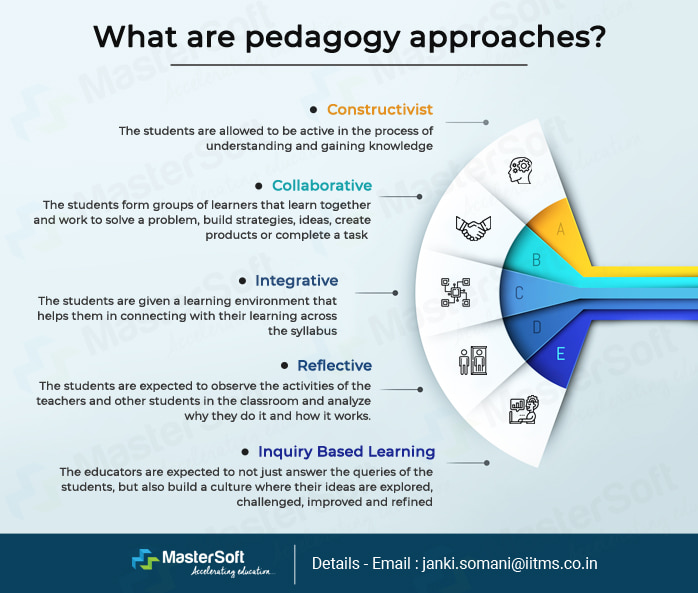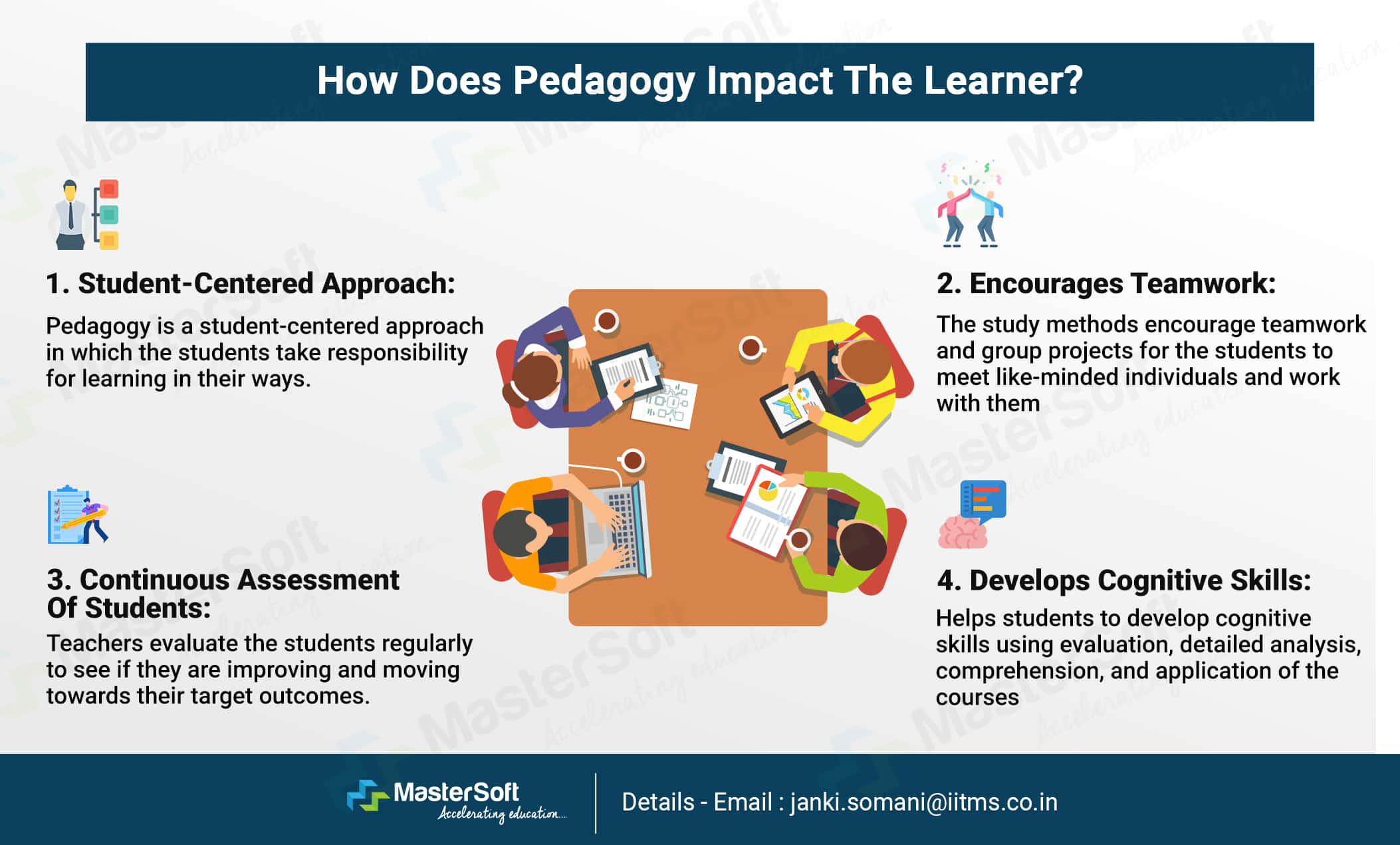What Is Pedagogy? Importance Of Pedagogy In Teaching And Learning Process
Beginning of pedagogy
During an ancient period in Greece, the role of the teacher was first introduced, and teaching was considered an art form. Attending school and getting education was something that only the wealthiest could afford for their kids. The role of the teacher or an educator was considered the most important one in the learning process as they gave invaluable knowledge and wisdom to the children.
However, the educators weren’t the first pedagogues. The rich individuals of the area used slaves to take their children to school. They were considered as the experienced and wise who imparted knowledge to the children they were taking to school. This is how the word pedagogue was created. It is described as the 'leader of children'. They guide the students academically as well as morally.
What Is Pedagogy?
Pedagogy is a method of teaching in which teachers teach, both in theory and in practice. Pedagogy is shaped by educator's teaching beliefs and involves their understanding of culture and different learning styles. It is essential for students to have meaningful classroom relationships in order to build on prior learning.
Pedagogy refers to the way of teaching students, whether it is the theory or practice of educating. It is a relationship between the culture and techniques of learning. The main aim of pedagogy is to build on previous learning of the students and work on the development of skills and attitudes of the learners. Pedagogy enables the students to get a thorough understanding of the subject and helps them in applying those learning in their daily lives outside of the classroom.
What Is Pedagogy In Teaching?
Pedagogy in teaching can be referred to as an educator’s understanding of how the students learn. The teachers are focused on presenting the syllabus to the students in such a way that it is relevant to their needs. Pedagogy demands classroom interactions between the teacher and students which create a significant impact on the learner’s mind.
What Is Teacher Pedagogy?
Teacher pedagogy refers to the pedagogy that is centered towards the teacher, who gives the most meaningful course information. In this approach, the teacher has a large responsibility of giving correct information to the students in the right way, irrespective of their teaching styles. The teacher can give a clear understanding of how the students are doing concerning their learning and also be an effective model for the target language.
What Is The Pedagogy Approach?
The 5 major approaches of pedagogy learning are-

- Constructivist
- Collaborative
- Integrative
- Understanding the process of learning
- Differentiating issues by relevance
- Making use of the lessons in practical scenarios
- Associating the concepts in regular lives
- Reflective
- Inquiry-Based Learning
In this approach, the students are allowed to be present in the process of understanding and gaining knowledge rather than just passively receiving information. This encourages critical thinking among the students and gives a learning environment in which they can connect with what they are hearing.
Here, the students form groups of learners that learn together and work to solve a problem, build strategies, ideas, create products or complete a task. This is a joint intellectual effort by the students among themselves or with the help of the teachers.
For the integrative approach, the students are given a learning environment that helps them in connecting with their learning across the syllabus. The four objectives of integration include-
As per the reflective approach, the students are expected to evaluate themselves. It means observing the activities of the teachers and other students in the classroom and analyzing why they do it and how it works.
In the inquiry-based learning method, the educators are expected to not just answer the queries of the students, but also build a culture where their ideas are explored, challenged, improved, and refined. It aims to take the students from the position of wondering about a question to understanding the answer and then questioning it further.
Importance Of Pedagogy In Teaching
- Improves Quality Of Teaching
- Encourage Cooperative Learning Environment
- Eliminates Monotonous Learning
- Student Can Follow Their Ways Of Learning
- Convenient Learning Approach For All
- Improves Teacher-Student Communication
- Pedagogical Approach
- Pedagogical Technique
- Improves Teaching Quality
- Encourages Different Learning Styles
- Enables Learning For Students With Special Needs
- Clarifies Learning Objectives
- Student-Centered Approach
- Continuous Assessment Of Students
- Encourages Teamwork
- Develops Cognitive Skills
If a well-thought pedagogy is implemented in the classrooms, the quality of education can show a drastic improvement. This will benefit the students by helping them thoroughly understand the education material, thereby improving the learning outcomes.
The implementation of pedagogy in education encourages the students to work together towards completing a task and learn together. This increases their perceptions by understanding and taking views from the other students, thereby adapting the cooperative learning environments making them better leaders in the future.
Pedagogy and child development work hand in hand. It helps the student to think in different ways and move beyond the traditional methods of memorization and comprehension for learning. It invokes complex processes of learning among the students such as analyzing, creative thinking, and evaluation. Further, it makes students more receptive to what the teacher is teaching.
A well thought pedagogy can help the students to grasp education in various ways. It caters to the learning abilities of different students. Students can follow their preferred ways of learning and stick to them. In this way, the students develop a better understanding of the subject, which eventually improves their skills and learning outcomes.
Students with special needs require different ways of learning and teaching in the institutes. Implementation of a suitable pedagogical approach will help them learn better and encourage them to be a part of the mainstream learning community.
The teacher understands the student in a better way which helps them to focus on the student’s weaknesses and guide them.
Difference between a pedagogical approach and pedagogical techniques
A pedagogical approach is a completely unified method of looking at teaching. It takes several elements from all the approaches of pedagogy which include Constructivism, Behaviourism, or Liberationism. It further applies that approach in all aspects of teaching.
A pedagogical technique defines a set of actions performed by the teacher in the classroom for teaching. It includes flipped learning, computational thinking, and deep learning. It is more granular than the entire pedagogical approach
Types of Pedagogy
Types of pedagogy are:
1. Social Pedagogy:
It is aimed towards the social development, awareness, and well-being of the students. The teaching must consist of values and moral education.
2. Critical Pedagogy:
It aims towards comprehending and deconstructing several daily life problems and issues. It encourages the student to dig deeper into things and try to understand their thoughts and beliefs on a certain topic.
3. Culturally Responsive Pedagogy:
It aims to address the cultural diversity among students. It helps to comprehend cultural differences among the students and increases awareness about cultural differences in school.
4. Socratic Pedagogy:
It aims to encourage the students to gain more knowledge from other sources along with what is provided to them. This helps the students to find alternative solutions to the problems.
Role of Pedagogy in Effective learning
It enhances student participation in learning and makes them more receptive to what is being taught.
The main focus is given on the outcomes of courses and the students are free to learn in their styles.
It encourages the students with special needs to be a part of the mainstream teaching ways and engage with other students.
The student studies a particular subject with a clear objective of outcomes such as gaining skills and knowledge of the subject.
How does pedagogy impact the learner?
Pedagogy is a student-centered approach in which the students take responsibility for learning in their ways.
Teachers evaluate the students regularly to see if they are improving and moving towards their target outcomes.
The study methods encourage teamwork and group projects for the students to meet like-minded individuals and work with them
Helps students to develop cognitive skills using evaluation, detailed analysis, comprehension, and application of the courses

Conclusion
In this way, the well-thought, modern-day pedagogy is a complete interrelation of the concepts and ideas, along with the ways of teaching the students. It also indicates that these practices have direct involvement with the student’s achievements, results, and skills developed after following the approach.


0 Comments
Thanks To response